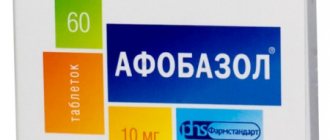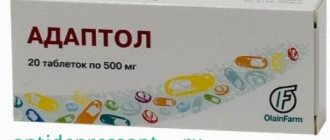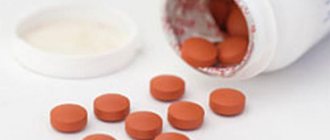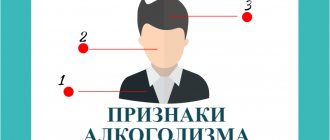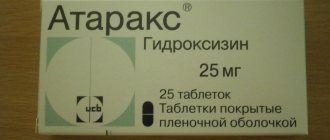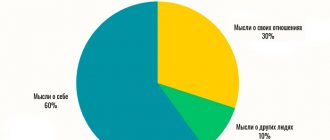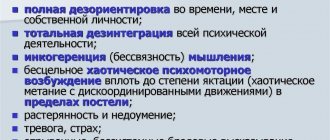Inadequate sleep, stress at work and constant tension lead to the systematic destruction of the mechanisms of stable functioning of the central nervous system. As a result, sleep is lost, one feels exhausted and tired even after proper rest, irritability, anxiety, and apathy increase, which can ultimately lead to a disease such as vegetative-vascular dystonia.
Finding a similar list of symptoms in patients, neurologists and psychotherapists are in no hurry to prescribe full-scale drug treatment. If the situation is not advanced, it is better to take gentle measures in the form of anxiolytics, of which the first on the list are Tenoten or Afobazol.
Production of drugs
Both representatives are produced in Russia. Afobazole is produced by Pharmstandard-Leksredstva, Tenoten is produced by Materia Medica Holding.
Within the classification, drugs belong to the same pharmacological group - anxiolytics, despite the fact that the active ingredients are not the same. The release form is different - Afobazole is released in the form of tablets for swallowing. Tenoten is intended for resorption.
Release form
This is an anxiolytic, nootropic drug.
Lozenges are white to almost white, flat-cylindrical, scored and chamfered; on the flat side with a mark there is the inscription “MATERIA MEDICA”, on the other flat side there is the inscription “TENOTEN”.
| 1 tab. | |
| antibodies to brain-specific protein S-100, affinity purified | 3 mg* |
Excipients: lactose monohydrate - 267 mg, microcrystalline cellulose - 30 mg, magnesium stearate - 3 mg.
* applied to lactose in the form of a water-alcohol mixture containing no more than 10-15 ng/g of the active form of the active substance.
20 pcs. — cellular contour packages (1) — cardboard packs. 20 pcs. — contour cell packaging (2) — cardboard packs.
Description of the pharmacological activity of the group
Anxiolytics are psychotropic drugs that help reduce feelings of fear, anxiety, and unreasonable anxiety. The mechanism of action is based on reducing the excitation of the thalamus, hypothalamus, and limbic system, which are responsible for the emotional manifestations of the body's states.
Anxiolytics inhibit the interaction of these sections with the cerebral cortex and inhibit polysynaptic spinal reflexes.
The main effects caused by anxiolytics:
- sedative,
- hypnotic,
- muscle relaxant,
- anticonvulsant,
- amnestic,
- vegetative stabilizing.
The combination of two or more effects depends on the type of anxiolytic, concentration and concomitant medications. Depending on these combinations, there are:
- benzodiazepines with a predominant anxiolytic effect,
- benzodiazepines with a predominant hypnotic effect,
- benzodiazepines with a predominant anticonvulsant effect.
The drugs are not compatible with alcohol, as it enhances the effect of the active substances on the central nervous system. Concomitant use with other drugs that cause CNS depression is contraindicated.
Reviews
What do patients say about the drugs?
"Afobazol"
“A minor effect appeared only after 2 weeks of use.”
New generation chondroprotectors for the spine, list and price [6 best]
“The drug is very good. It copes well with irritability, normalizes nighttime sleep and does not cause daytime sleepiness.”
“Only after taking it for two weeks did a weak effect begin to appear. The medicine is well tolerated. You will have to wait a very long time for calm, so I do not recommend the drug. There are much better means."
"Tenoten"
“I think that all homeopathy is a dummy. I tried a lot of these remedies, but I didn’t notice any results.”
“I gave Tenoten to a child. The son disobeyed at school and argued with classmates and teachers. After treatment with this remedy, I became much calmer and my academic performance improved.”
Reviews from neurologists
"Afobazol"
“There is no point in taking Afobazol as a separate remedy. The effect can only occur in combination with other sedatives.”
“In combination with anticonvulsants, their dosage is reduced.”
“The main drawback is that it takes too long to get any effect.”
Contraindications
The drug is contraindicated:
- lactose deficiency,
- galactosemia,
- lactation period, pregnancy,
- individual intolerance.
The drug has a version for use in pediatrics - Tenoten for children. Its use is prohibited for children under 3 years of age. Tenoten regular should not be taken by children under 18 years of age.
Common features of Tenoten and Afobazole
It is not easy to say unequivocally which of the two drugs is better. When choosing the right medication, you will first have to face the problem of tolerability. However, both medications have few side effects.
They are also equally contraindicated for pregnant patients, children (with the exception of Tenoten for children), and patients during lactation. Both medications are sedatives that help fight stress, emotional lability and have an anti-anxiety, stress-protective effect.
Choice of drugs
When choosing Afobazole or Tenoten, it is impossible to clearly determine which is better, since much depends on the issue of individual susceptibility.
Afobazole is a completely synthetic drug with a psychotropic tranquilizing effect. Medical practice shows that its use is appropriate if Tenoten does not help. The latter is classified as a homeopathic remedy, so its effect is less pronounced.
One of the main advantages of Afobazole is that it does not cause addiction or withdrawal symptoms; the results of treatment are consolidated and last for a long period.
The advantage of Tenoten is its nature - since it is less synthetic, its use is permitted in childhood and has minimal side effects.
Tenoten is best used in specific situations during irritation or stress, as it quickly leads to the desired effect. Afobazole will act only after the first five days, as it is intended for course treatment. The first representative is more expensive and is sold strictly by prescription.
You can compare drugs by age group and severity of the disease. If the form of depression, anxiety or stress is severe, prolonged and advanced, and the patient is over 18 years old, it is advisable to prescribe Afobazol. If in the same age category the problem is unsystematic, it is better to start with Tenoten. It is also more relevant if the problem concerns a pediatric patient.
Phenibut
The active component of Phenibut is a phenyl derivative of gamma-aminobutyric acid, which helps restore the conduction of nerve impulses and improves brain function.
Phenibut will help with the following conditions:
- anxiety;
- unmotivated fears;
- hyperactivity (in a child);
- increased excitability;
- psycho-physical disorders (stuttering, nervous tics);
- asthenic syndrome;
- depressive states.
Phenibut stimulates brain activity, calms, but does not cause drowsiness. Phenibut should not be prescribed for liver pathologies, ulcers of the duodenum and stomach.
Tenoten and Phenibut have similar nootropic effects and are considered analogues of different composition. If you take Tenoten and Phenibut at the same time, you can achieve a higher therapeutic effect in the treatment of severe neurological disorders . If there is intolerance to one of the drugs, then the patient is prescribed Afobazol or another tranquilizer with a nootropic effect. The replacement of the medication is carried out by a doctor; you cannot change the medications yourself.
Concomitant use
Both of these drugs can be used as complex therapy simultaneously. Tenoten has no contraindications for joint use, unlike Afobazole, the use of which is usually not recommended with other drugs from the group of anxiolytics.
But since Tenoten is a homeopathic medicine, it is possible to formulate complex therapy by strictly controlling the dosage of Afobazole and its ratio - this is done only by the attending physician, and the dose should be adjusted monthly depending on changes in the patient’s condition.
Joint use is prescribed for the treatment of prolonged anxiety, restless sleep, a noticeable decrease in concentration and memory quality.
Phenibut – an assistant in stressful situations
Worries, fears and anxiety, sleep dysfunction, all these are indications for the use of Phenibut. The drug has a positive effect on metabolic processes in the central nervous system. Phenibut helps reduce psychological and emotional stress and improve sleep. The drug is suitable as preparatory therapy before surgical interventions.
The combined use of Phenibut with a sleeping pill enhances the effects of the latter. The same effect is observed when using Phenibut and drugs against Parkenson's disease. Phenibut does not cause seizures, reduces headaches, irritability, increases emotional stability and brain performance.
When using the drug, indicators such as memory, attention, speed and accuracy of reactions improve. From the first days of using Phenibut, patients note an improvement in well-being, expressed in increased interest and personal motivation.
Patients' opinions
Reviews of drugs from different groups of patients differ. The effectiveness of treatment directly depends on the depth of nervous system disorders, concomitant diseases, and the psychological environment during the course of therapy.
Most patients with chronic vegetative-vascular dystonia and neurosis noted an improvement in their condition after a course of treatment with Afobazole. Psycho-emotional stabilization, a more indifferent attitude towards everyday sources of irritation, and an improvement in the quality and depth of sleep were noted. Negative reviews were associated with side effects: 19% of patients noticed red rashes on the skin of the hands and face, accompanied by itching, as well as fatigue and drowsiness throughout the day. Therefore, despite the instructions, the use of Afobazole is not recommended if it is necessary to drive a vehicle or other mechanism that is dangerous to life.
Maximum pharmacological activity was observed during treatment with a course according to the manufacturer’s instructions. A repeated course has less effect, a third course has practically no desired effect. Among other side effects, patients noted weight gain, since Afobazole has the property of slowing metabolism and increasing appetite. In the case of a balanced diet, this side effect is not observed.
Reviews about Tenoten were positive only when the diseases were not chronic and proceeded mainly without complications. Outbursts of anger and a rolling feeling of anxiety were successfully overcome by Tenoten within 15 minutes after taking the drug. However, Tenoten turned out to be less effective in the treatment of depression, apathy, insomnia and neuroses.
Experts' opinion
Therapists agree that Afobazole is a fairly mild and easily tolerated drug. If it is necessary to prevent diseases of the central nervous system that were previously cured, Afobazol is ideal. In addition, it is chosen by most psychotherapists for the treatment of prolonged depressive conditions.
Tenoten as such does not belong to traditional means of drug treatment. Its attitude towards homeopathic remedies makes most specialists refuse to use Tenoten, however, they do not deny its effectiveness in cases of minor manifestations of psychosomatic disorders. It is noteworthy that Tenoten remains more popular for strokes and organic pathologies.
In some cases, the use of Afobazole is unacceptable due to intolerance to the components of the drug, childhood or personal ineffectiveness. In such cases, Tenoten comes as a replacement, but for no more than two weeks - then a more effective drug in terms of duration is prescribed.
Comparison of the effects of anxiolytics
The difference between Tenoten and Afobazole lies in their composition and differences in their effect on the body. The first drug has a combined effect and belongs to two groups at once: neurometabolic stimulants (nootropics) and anti-anxiety drugs. Afobazole refers only to anxiolytics. Therefore, these drugs match in the ATC only by one code: N05BX.
Comparison table of indications for the use of anxiolytics Afobazole and Tenoten:
| Nosology | Disease code according to ICD-10 | Afobazole | Tenoten for children | Tenoten | Explanation of nosology |
| Somatic manifestations of diseases with anxiety | ― | V | The appearance of anxiety in asthma, COPD, lupus, cardiac ischemia or arrhythmia, hypertension, irritable bowel syndrome, and other somatic pathologies. | ||
| Asthenic disorder | F06.6 | V | |||
| Personality and behavioral disorder | F07 | V | |||
| Somatoform disorder | F45.9 | V | |||
| Withdrawal state | F10.3, F17.3 | V | Disorder caused by alcohol consumption or smoking (hangover syndrome, nicotine withdrawal). | ||
| Anxiety disorder | F41.1, F41.9 | V | V | V | Generalized or unspecified disorder (phobic neurosis, panic attacks, anxiety states). |
| Anxiety-depressive disorder | F41.2 | V | Signs of a mixed type of disorder. | ||
| Reaction to stress or related adjustment disorder | F43.0―F43.9 | V | V | Consequences of stress and depression. | |
| Neurasthenia | F48.0 | V | V | V | |
| Other NS disorders | V | V | Psycho-emotional stress. | ||
| Fluctuating Personality Disorder | F60.3 | V | |||
| Violation of attention, behavior, activity | F90.0, F91 | V | Depression, school neurosis or with lethargy, lack of attention, hyperactivity syndrome. | ||
| Kleine-Levin syndrome | G47.8 | V | A disease in which a person sleeps more than 18 hours a day. | ||
| Autonomic nervous system disorders | G90.0―G90.9 | V | V | V | VSD and other types of dystonia, vegetative lability. |
| Cerebrovascular disease and its consequences | I67.9, I69 | V | Impaired blood circulation in the brain, hypoxia, vascular changes. | ||
| Cognitive and psychoemotional disorders | R41.3.0, R45.0–45.4 | V | V | Irritation, apathy, nervousness, memory impairment, demoralization, anxiety, anger, emotional agitation. | |
| Emotional disorder in children | F93.9 | V | Neurotic syndrome. | ||
| PMS | N94.3 | V | Deterioration of psycho-emotional mood due to a change in the phase of the cycle. | ||
| Violation of adaptation to changes in lifestyle | Z60.0 | Jet lag or adaptation to a new job, after moving, and so on. | |||
| Injuries and their consequences | T14, T90, S06 | V | Unspecified or intracranial injury. |
Note: in practice, doctors prescribe Afobazole for the same cognitive and neurotic disorders as Tenoten. The drug with fabomotizole normalizes the psycho-emotional state in 2/3 of patients, improves memory and concentration.
